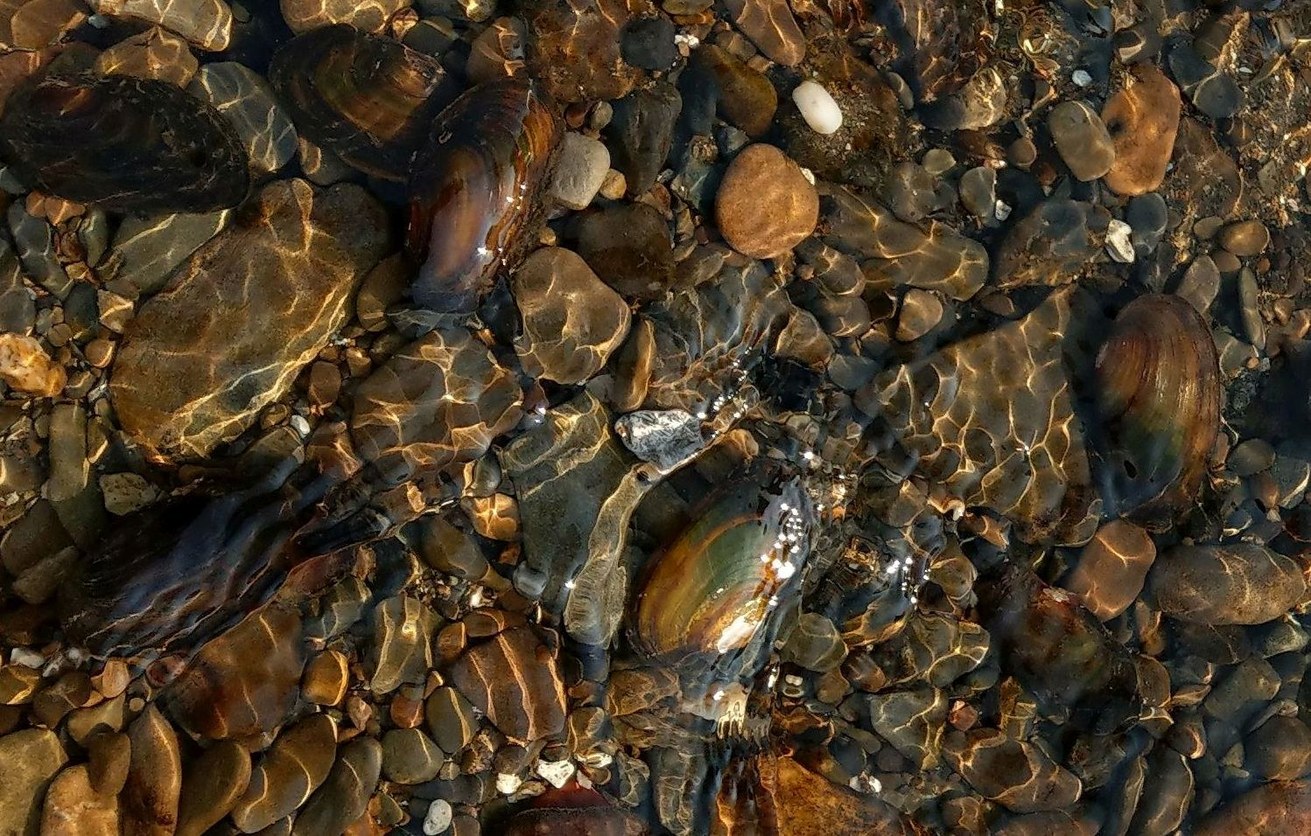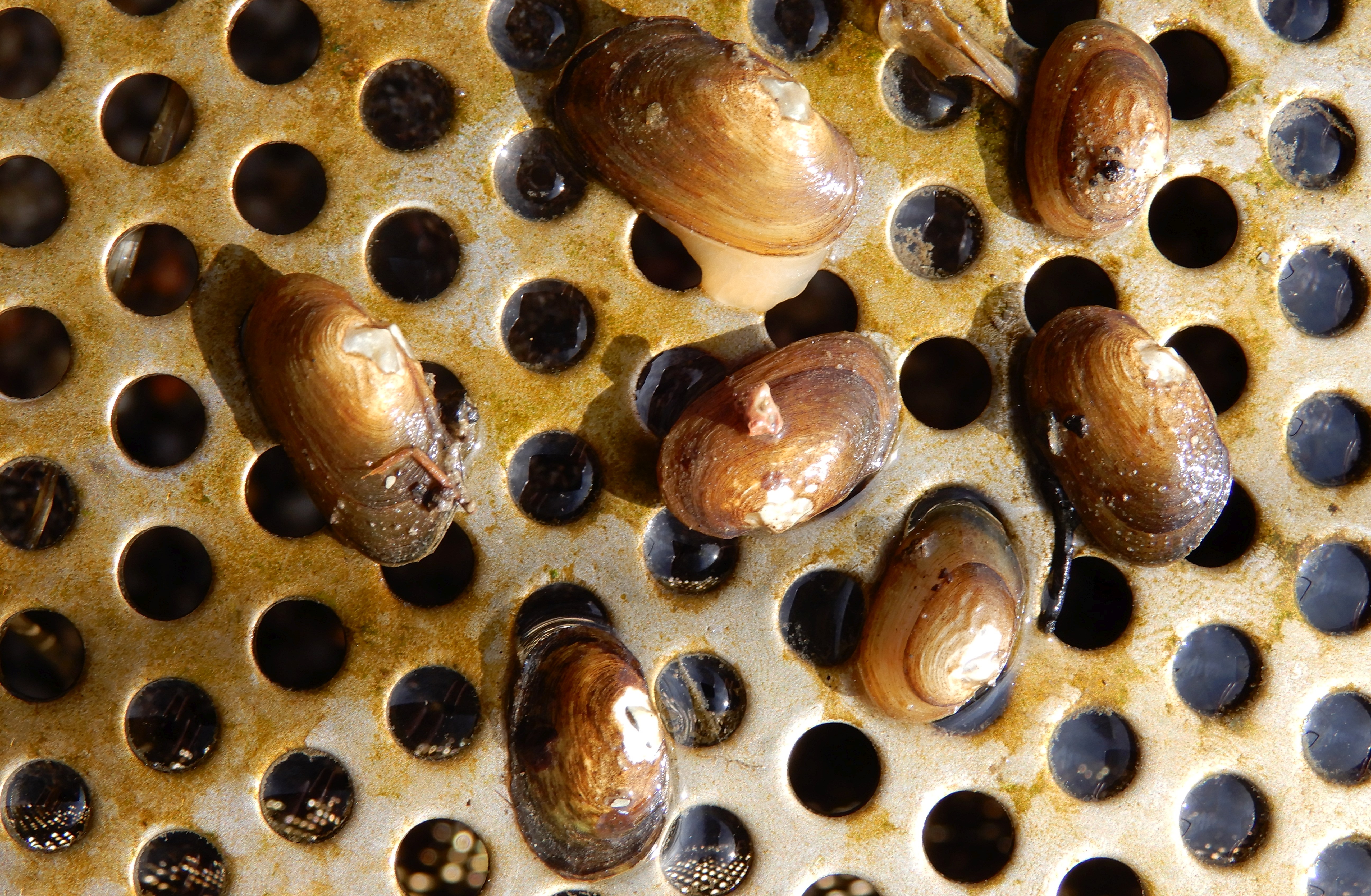Visit profile

Research cooperation for thick-shelled river mussel conservation
Promoting the spread and reintroduction of thick-shelled river mussels in Rhineland-PalatinateThe aim of the research collaboration is to evaluate currently known populations and to develop a concept for the sustainable protection and promotion of thick-shelled river mussel populations in view of their endangerment and their ecological functions for aquatic systems. The thick-shelled river mussel (Unio crassus) is a specially protected species (Federal Nature Conservation Act, Habitats Directive, Red List) and is classified as critically endangered in Rhineland-Palatinate. Regardless of their conservation status, healthy mussel populations in rivers provide important ecosystem services, such as filtering large amounts of particulate matter from the water and loosening water sediments.
In Rhineland-Palatinate, knowledge of the current distribution and population densities of thick-shelled river mussels is poor, and the causes of population declines and sporadic positive population trends are generally unknown. For this reason, this collaborative project will carry out a situation analysis of the currently known populations of the thick-shelled river mussel in Rhineland-Palatinate. This will show where in Rhineland-Palatinate thick-shelled river mussel populations still exist, what the current status of the mussel population is and what factors are influencing it. In addition, the situation analysis will indicate for which former thick-shelled river mussel populations the current population situation needs to be examined on site and/or potential impairment factors need to be recorded. Based on these data, a threat analysis of the river mussel populations will be conducted, from which the need for further research and management needs for a sustainable conservation of thick-shelled river mussels in Rhineland-Palatinate will be deduced.

Based on current knowledge, it can be assumed that long-term breeding of thick-shelled river mussels is necessary for sustainable thick-shelled river mussel conservation. For this reason, the project also includes an analysis of how the cultivation of mussels can be further developed from a scientific point of view. In the form of a SWOT analysis, the future chances of success and risks of mussel cultivation at the mussel cultivation station of the water protection association ARGE Nister/Obere Wied e.V. will be analysed based on evidence.
This data will then be used to develop a sustainable and science-based/science-supported concept for the conservation of thick-shelled river mussels in Rhineland-Palatinate.





